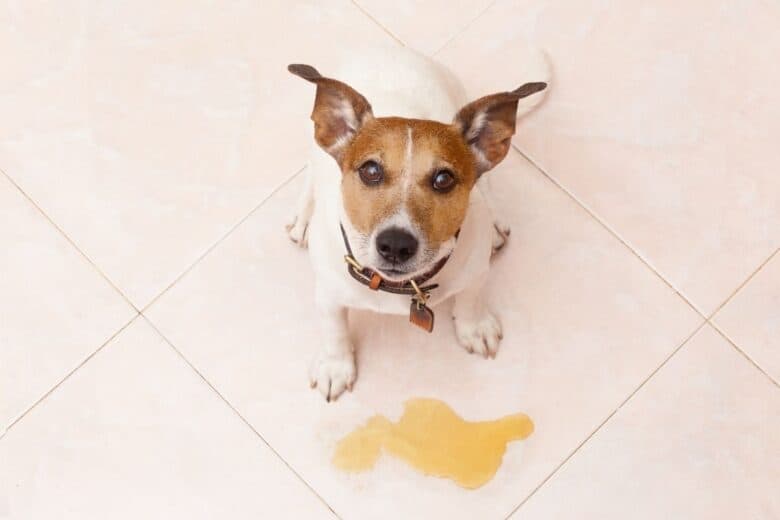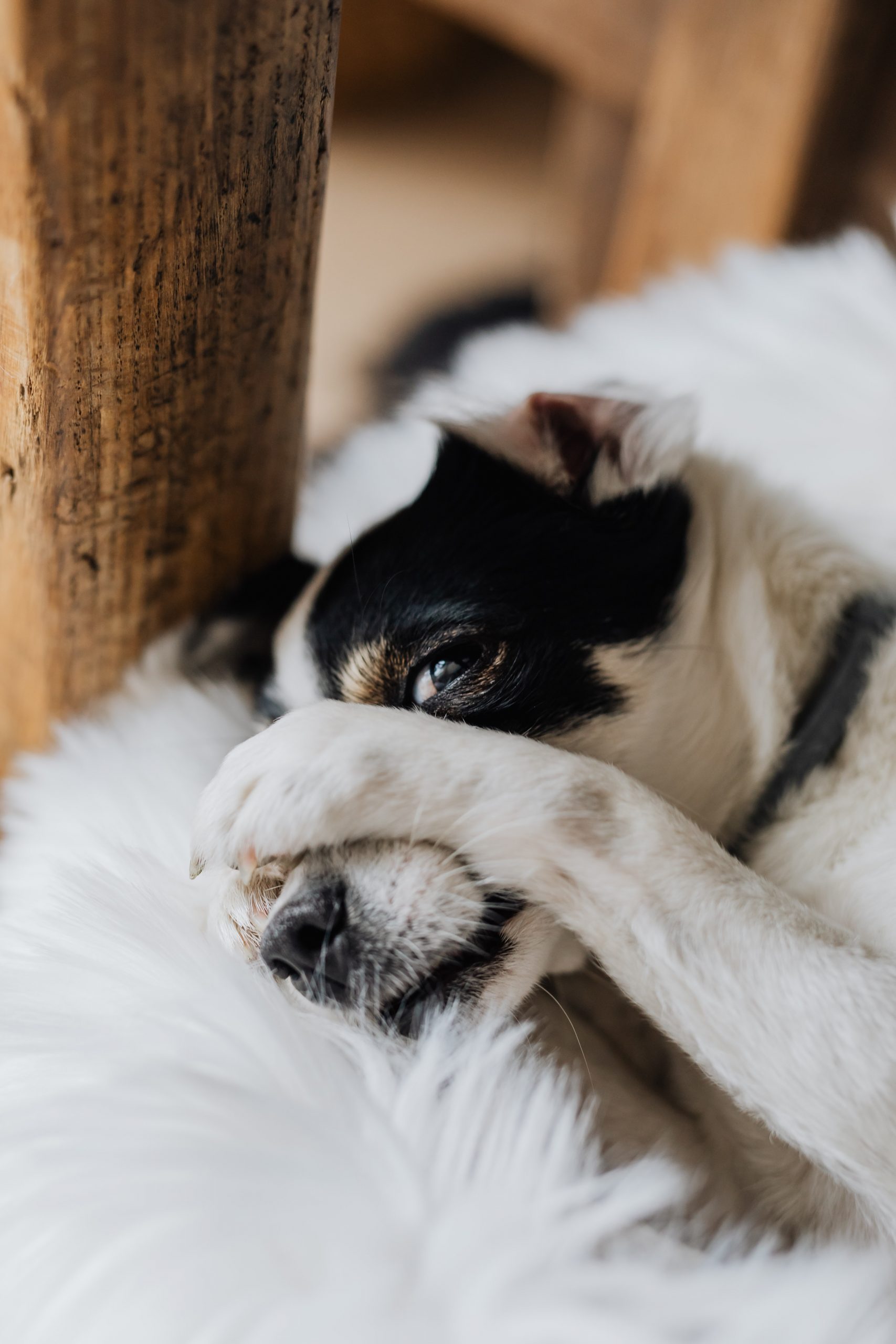How to Stop Your Dog From Peeing & Pooping in the House: 11 Tips & FAQ
Table Of Content

Even the Centers for Disease Control and Prevention recognizes there are a multitude of ways pets can have a positive impact on your health. If you do catch your dog about to pee or poop indoors, try picking them up and carrying them outside while putting their leash on. Take them to the area you want them to use and walk back and forth or in circles.
How to find pet-friendly housing
They should remain on dogs for no longer than three to four hours and should be replaced immediately after being soiled. Dogs mark to advertise their presence and claim territory and resources. Get Reader’s Digest’s Read Up newsletter for more pet tips, humor, cleaning, travel, tech and fun facts all week long.
Fear And Anxiety
Unless there is an obvious trigger such as being frightened or being left alone for a long period of time, this is not normal for a potty trained dog. If your canine friend is well beyond their initial potty training years, you may be concerned when they begin to pee in your home again. Adult dogs that have been relocated between multiple families and households, especially those from a rescue situation, can have issues with urinary accidents. Once your vet has ruled out all health issues, it is likely that you and your dog are facing a behavioral problem.

What is Canine Incontinence?
As winter arrives, note these tips to keep your pets warm, healthy Lifestyle News English Manorama - Onmanorama
As winter arrives, note these tips to keep your pets warm, healthy Lifestyle News English Manorama.
Posted: Tue, 08 Nov 2022 08:00:00 GMT [source]
For example, if you’re a fan of Yelp, you can conduct a search on its website of top dog-friendly apartments in L.A. And read ratings and other pet owners’ remarks to get a sense of the community and quality of pet-friendly apartments among different neighborhoods. Any time your dog has a recent change in their usual habits, it’s worthwhile to rule out a medical problem. You’ll get the peace of mind that your dog’s not sick or in pain so you’ll be ready to move forward with training. I know that stuff is expensive, but if it can keep you from having to replace the carpet, it’s well worth it. But when your dog pees on the floor, it soaks through the carpet into the backing and sometimes even down to the hardwood beneath.
For the latter, the crystals or stones sometimes must be removed via surgery through a procedure known as a cystotomy. This involves surgically opening the dog’s bladder in order to manually remove the stones. Sometimes these symptoms can come on very slowly, and owners think it’s just that their pooch is getting old. But normal aging doesn’t make a dog upset, anxious, miserable, or confused! Your vet can make a diagnosis and make sure Fido gets the right treatment.
Before we discuss the details of why your potty trained dog is peeing in the house, we should first answer the question of whether or not this is normal. While most dogs are fully potty-trained well before they are considered an adult, it is not uncommon to see setbacks in housetraining that can lead to urinary accidents. Other health issues, such as kidney failure, tend to crop up in old age as well. This is another reason to get your veterinarian involved early and often. In some cases, dementia can be somewhat managed with medications and supplements. Many people living with senior dogs that have urinary issues also choose to use doggie diapers or line the dog's bedding and other frequented areas with absorbent pads.
Prospective Owners
This anxiety can be linked to loud noises, new pets in the home, storms, new visitors, and everything in between. If you are away from your home for an usually long amount of time, your dog may not be able to hold their bladder. Oftentimes these issues will resolve once your pup adjusts, but we suggest keeping a close eye on them as they get used to the transition. If there have been any major shifts in your home setting, this could be the cause of your dog’s sudden accidents. You can help your dog by slowly introducing them to other people or situations where this may happen, or limiting these fearful interactions when possible.
Senior dogs especially can develop many conditions that can increase the need to go or lose control of their bladder muscles, which is why dogs pee more often as they age. If you haven’t had any problems previously and your older dog is peeing indoors, it is a good idea to check with your vet to rule out anything serious. “Marking” an object in the home is common, especially with male dogs who haven’t been neutered. Figuring out if your best friend has a behavioral or medical issue causing them to pee in the house can be frustrating. Be patient with your dog and do not punish them in any way (yelling, scolding, confining to a crate, hitting, rubbing their nose in the pee, etc.). There are a variety of causes for this issue, including dogs rescued from an abusive environment, dogs who live in a multiple-dog household, and even dogs simply responding to cues from their pet parent.
19 Cleaning Products To Get Rid Of Pet Poop And Messes - BuzzFeed
19 Cleaning Products To Get Rid Of Pet Poop And Messes.
Posted: Mon, 24 Apr 2023 07:00:00 GMT [source]
Pets and rental housing: What you need to know
Other medical conditions causing indoor peeing – such as urinary tract infections – are relatively benign when treated quickly. Sometimes, even housetrained dogs may have accidents inside due to medical issues, anxiety, or marking behavior. It’s important to address the underlying cause and take appropriate steps to stop the behavior.
House training can take a while, and you might need to review the steps as you go. If your dog pees when they get excited or anxious, work on desensitizing them to triggering stimuli and teaching them alternative coping mechanisms, such as sitting or lying down. Provide a calm and structured environment, use positive reinforcement, and consult with a professional trainer or behaviorist for additional guidance.
In addition to training, some have found using an ADAPTL (dog appeasing pheromones) collar, diffuser, or spray helpful in calming their anxious dog, which helps stop territorial marking. These collars are about $10 at pet stores, and most vet offices carry some version of it, too. One of the causes of territorial marking is hormones, and the other is social communication. Your dog might be trying to stake their claim on a territory, or they could be letting you know how they feel about that new couch (household changes are a huge trigger for urine marking). Stock up on washable dog pee pads and a UV flashlight that’ll detect your four-legged friend’s accidents.
Your veterinarian is the best person to determine the most appropriate treatment. Making your own Shaker Bottle can often help you stop dogs from frequent peeing in the home. As soon as you notice your pooch doing the pee dance which inevitably involves sniffing, circling and finally squatting give the bottle a firm shake or spray him with the water. While trying to housetrain any dog it is important you keep them from being distracted. Avoid playing with them until the business is taken care of they will be much more interested in a game of tug or playing with a ball than going to the loo, and that’s when accidents happen. Keep the games for afterwards when they will not only enjoy the playtime but also see it as a reward.
If there is a removable carpet in that area (doormats are popular pee spots), put it outside. (In fact, learning how to stop grown dogs from peeing in the house requires the same information as learning how to curb indoor urination in young dogs.) Size is often more of a determining factor. “Due to a larger bladder size, most larger breeds have a greater capacity to wait than smaller breeds,” she says.
Your vet will most likely want a urine sample from your dog in order to perform a urinalysis and possibly a urine culture. This test is done to look for bacteria and abnormal cells in the urine. If your vet diagnoses a urinary tract infection, the next step is a course of antibiotics. If your house-trained dog starts peeing in the house again, there are several potential causes for it. Some dogs experience separation anxiety when their owners leave them home alone. Barking, destructive behavior, obsessive pacing and relieving themselves indoors are a few of the symptoms dogs show.
UTI’s can be extremely uncomfortable for our furry friends, causing them to feel the need to urinate more frequently than usual. If this is common for your canine friend, we suggest moving any exciting interactions outdoors or onto a surface that is easy to clean. It is seen most in young dogs and puppies, but it can happen in dogs of any age. Ranging from urinary complications to canine anxiety, there are a list of potential factors behind this change in behavior. Sign up for weekly pet health tips and insights from our veterinarians.
Comments
Post a Comment